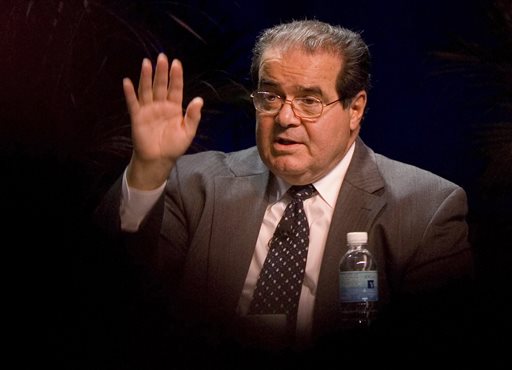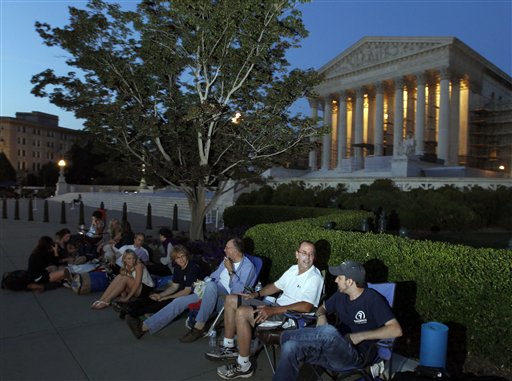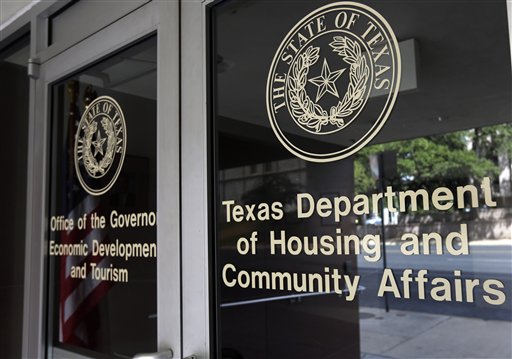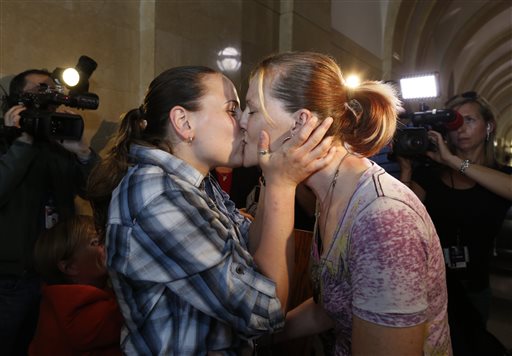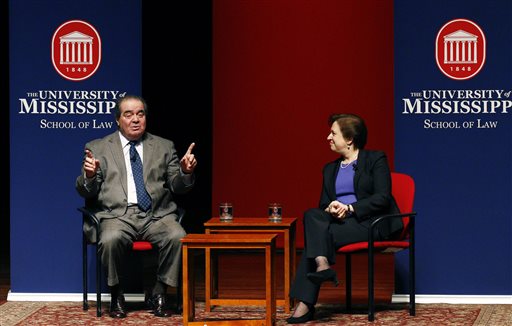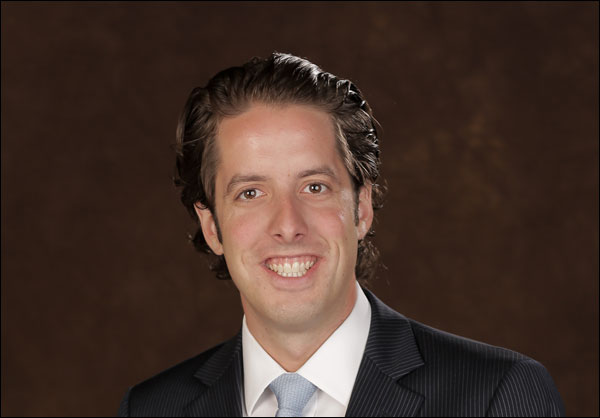Obama warns high court credibility at stake in nominee fight
President Barack Obama accused Senate Republicans on Wednesday of putting the U.S. Supreme Court's credibility at risk if they make good on their vow not to consider or vote on his pick to replace the late Justice Antonin Scalia. He promised to nominate a candidate anyway.
GOP Senators: No hearing, no vote for Obama US Supreme Court pick
Republicans on the Senate Judiciary Committee on Tuesday ruled out any hearing for President Barack Obama's nominee to the U.S. Supreme Court, insisting that the choice rests with the president's successor.
US Supreme Court scuffle triggers constitutional clash
It only took one man's death to give Congress an opening to permeate its dysfunction throughout the rest of government.
In victory or dissent, Scalia was a man of strong opinions
U.S. Supreme Court Justice Antonin Scalia kept your attention, whether you liked him or not.
Changes to US justices’ opinions will be highlighted
The U.S. Supreme Court is taking a step to address criticism that its inner workings are opaque
BENCH BLOG: Elections don’t turn judges into politicians
In a surprising decision delivered by Chief Justice John Roberts, the U.S. Supreme Court upheld state rules forbidding judicial candidates from personally asking donors for campaign money.
Scalia could be surprise vote in housing case
The Obama administration may need the vote of a frequent conservative antagonist on the U.S. Supreme Court to preserve a decades-old strategy for fighting housing discrimination.
Gay marriage cases teed up for justices’ action
Gay marriage cases are on the U.S. Supreme Court's agenda with enough time for the issue to be argued and decided by late June.
Scalia, Kagan: Common ground often trumps ideology
One is a sharp-tongued, self-described "wise guy" originalist, who believes the Constitution means today what it meant when it was first written. The other is a diplomatic former Harvard Law School dean who believes there must be "flexibility" in interpreting the nation's governing document.
ON THE DEFENSIVE: Defense lawyers are too hard on Scalia
Justice Antonin Scalia has been the target of considerable invective, largely because of his support for the death penalty.
Not so fast, SCOTUS
A new Twitter account, @SCOTUS_servo, alerts followers when the U.S. Supreme Court edits its decisions.
The more you know
A new study reported on NPR reveals that male judges tend to embrace feminism more often if they have daughters. Shocking, right?
Legal News
- Former law enforcement praise state’s response brief in Steven Avery case
- Eric Toney announces re-election bid for Fond du Lac County District Attorney
- Former Wisconsin Democratic Rep. Peter Barca announces new bid for Congress
- Republicans file lawsuit challenging Evers’s partial vetoes to literacy bill
- More human remains believed those of missing woman wash up on Milwaukee Co. beach
- Vice President Harris returning to Wisconsin for third visit this year
- Wisconsin joins Feds, dozens of states to hold airlines accountable for bad behavior
- Trump ahead of Biden in new Marquette poll
- Bankruptcy court approves Milwaukee Marriott Downtown ‘business as usual’ motion
- New Crime Gun Intelligence Center to launch in Chicago
- Arrest warrant proposed for Minocqua Brewing owner who filed Lawsuit against Town of Minocqua
- Wisconsin Supreme Court justices question how much power Legislature should have
WLJ People
- Power 30 Personal Injury Attorneys – Russell Nicolet
- Power 30 Personal Injury Attorneys – Benjamin Nicolet
- Power 30 Personal Injury Attorneys – Dustin T. Woehl
- Power 30 Personal Injury Attorneys – Katherine Metzger
- Power 30 Personal Injury Attorneys – Joseph Ryan
- Power 30 Personal Injury Attorneys – James M. Ryan
- Power 30 Personal Injury Attorneys – Dana Wachs
- Power 30 Personal Injury Attorneys – Mark L. Thomsen
- Power 30 Personal Injury Attorneys – Matthew Lein
- Power 30 Personal Injury Attorneys – Jeffrey A. Pitman
- Power 30 Personal Injury Attorneys – William Pemberton
- Power 30 Personal Injury Attorneys – Howard S. Sicula

